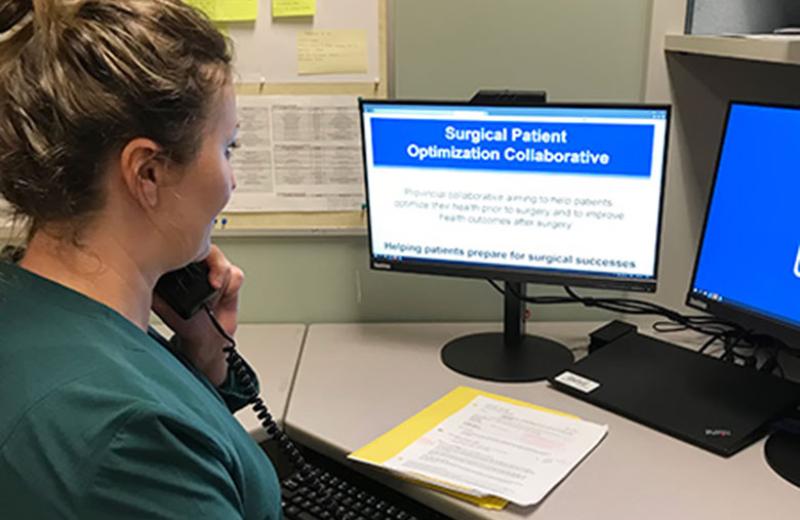Some health care professionals compare having a surgery with running a marathon; would you run a marathon without any training?
Running a marathon can be stressful – even traumatic – for your body, and so can major surgery. But by preparing your body for those events, you can help make sure they’re successful.
Some patients already know that preparing for surgery helps ensure success:
- “They said I would be staying in the hospital about four days and returning to work six weeks later after the surgery. I stayed in the hospital three weeks and returned to work six months later because I developed complications. Much of my everyday life was put on hold. If I had known that getting healthier before the surgery could have helped me to avoid this, I would have done something about it.” (patient report)
- “They were worried about a couple of things in my health condition right before surgery, so they had to cancel at the last possible minute. I wish there was a way to catch those worrisome things much sooner, so that I didn’t have to wait months again for a much-needed surgery.” (patient report)
Doctors and other health care professionals have long recognized that a patient who’s fit for surgery is more likely to have a good surgical result. This means minimal, if any, complications in the short or long term, a short hospital stay, no readmissions to hospital, and a smooth transition back to everyday life.
Four sites in Northern Health and 13 other hospitals in BC are taking part in an exciting pre-surgical optimization project to help patients become as healthy as possible before major surgery.
The project is the Surgical Patient Optimization Collaborative (SPOC), and it’s a priority of the BC Ministry of Health. The organization Doctors of BC, in partnership with BC health authorities, is leading this project.
The four Northern Health sites are Dawson Creek and District Hospital, the University Hospital of Northern British Columbia (UHNBC) in Prince George, Prince Rupert Regional Hospital, and Mills Memorial Hospital in Terrace.
Working from evidence-based studies, project leaders have established 13 areas of focus:
- Diabetes management
- Heart health
- Nutrition
- Mental health
- Anemia management
- Exercise
- Preventing blood clots
- Frailty
- Pain management
- Stopping smoking
- Alcohol and drug use
- Social supports
- Sleep disorders
Each site will focus on two to five components. For example, UHNBC will start preparing patients who are scheduled for urologic and gynecologic surgeries by focusing on diabetes management, frailty, social supports, and smoking cessation.
Other sites have chosen other areas of focus. What all sites have in common, however, is the goal of helping patients succeed in their surgical journey.
Pre-surgical optimization nurses will be reaching out to doctors and primary health care teams that have patients booked for major surgery at any of the four NH sites. These nurses will work with doctors and interprofessional teams to ensure patients are prepared for their surgery.














Comments